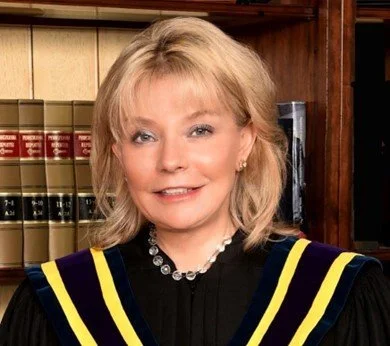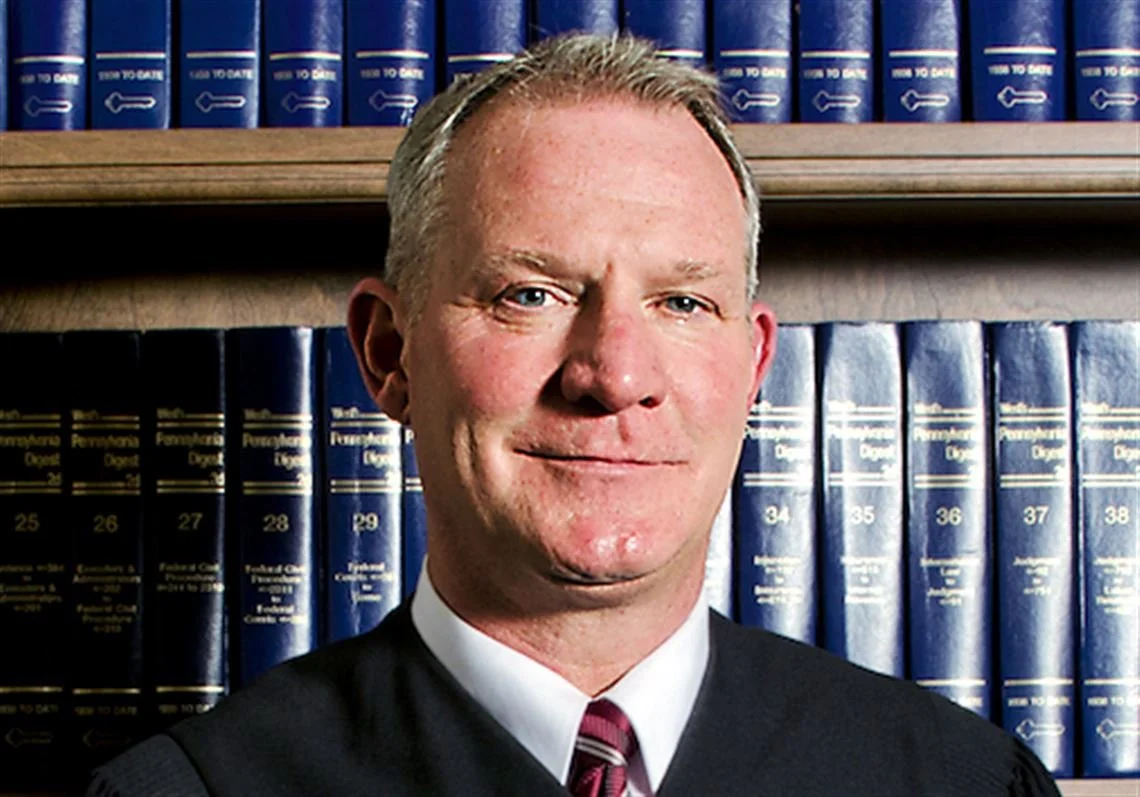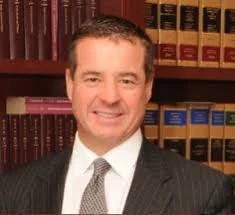WHAT YOU NEED TO KNOW ABOUT PENNSYLVANIA’S RETENTION ELECTION AND WHY IT MATTERS
THREE PA SUPREME COURT SEATS ARE ON THE BALLOT THIS FALL
On November 4, Pennsylvania voters will decide whether to keep three Supreme Court justices in office for another ten-year term.
It’s called a retention election—you vote Yes to keep a justice, or No to replace them.
The PA Supreme Court has seven justices: currently five Democrats and two Republicans. The three justices up for retention this year are all Democrats. If two or more lose, it could flip the Court’s majority—a shift with serious legal and political consequences. Both parties are bracing for a tough fight.
HERE’S WHY IT MATTERS
The Court shapes state law with real impact on our lives. In recent opinions and decisions, the Justices have affirmed:
That reproductive decisions should be made between a woman and her doctor.
That LGBTQ+ rights deserve constitutional protections.
That voters can use a provisional ballot if their mail-in ballot was rejected for missing a secrecy envelope
That the Fifth Amendment protects people from being forced to hand over their digital passwords
That cannabis odor alone isn’t enough to justify a warrantless search.
These ruling and opinions didn’t happen in a vacuum. They reflect the judgment, values, and interpretation of the justices themselves.
This November, voters have the power to decide whether three Democratic sitting justices will continue shaping Pennsylvania law for the next decade.Below is a look at each justice’s voting record to help you cast your “Yes” vote with confidence:
Justice Christine Donahue
• On abortion, Donohue wrote, “the Pennsylvania Constitution secures the fundamental right to reproductive autonomy.” And that “includes a right to decide whether to have an abortion or to carry a pregnancy to term.”
• On education, she agreed that a lower court should hold a trial on whether state officials are failing to adequately and equitably fund public education.
• On gun policy, in a dispute over a city’s restriction on the location of gun ranges, Donohue wrote that “engaging in firearms proficiency training on…private residential property is not covered” in “the Second Amendment
• On LGBTQ rights, Donohue wrote, “As judges we must educate ourselves on all LGBT issues, including the insidious nature of crimes directed at members of the LGBT community.”
• On marijuana, Donohue agreed that given medical marijuana’s legal status in Pennsylvania, the smell of marijuana cannot be the sole reason for a warrantless vehicle search. She also agreed that people under court supervision should be allowed to use medical marijuana.
• On redistricting, she agreed that the state legislature’s 2011 redistricting plan was an unconstitutional gerrymander.
• On voting, Donohue ruled that when a voter’s mail-in ballot is rejected because of a disqualifying mistake, that voter must still be allowed to cast a provisional ballot on election day.
• On voting, she opposed a ruling throwing out mail-in ballots that didn’t have the correct date.
Christine Donohue was elected to the Pennsylvania Supreme Court in 2015. She earned her bachelor’s degree from East Stroudsburg University, and her law degree from Duquesne University School of Law. She was in private law practice for 27 years at a civil trial lawyer and litigator. She was elected judge of the Pennsylvania Superior Court in 2007.
Area of personal interest: With increasing difficulty for young trial attorneys to get training in basic advocacy skills, she initiated an “effort by trial judges and lawyers to afford young lawyers opportunities to gain courtroom experience, especially presenting cases to civil juries.”
Justice Kevin Dougherty
• On abortion, Dougherty agreed that a lower court must hear a challenge to a law that limited the use of Medicaid funding to cover abortions. He has not indicated whether the Pennsylvania Constitution guarantees a fundamental right to abortion.
• On education, he wrote that the Court had a clear duty to consider whether Pennsylvania citizens’ Constitutional rights to “a proper public education” are being violated by inadequate funding.
• On LGBTQ rights, about the decision allowing same-sex couples to adopt children in PA, Dougherty said, “We have hundreds of thousands of children sitting in out-of-home placement, wishing they had a permanent and loving family. That one decision permitted many, many, many, many, many children to find loving homes. That’s phenomenal, the impact of one decision.”
• On marijuana, he agreed that people under court supervision should be allowed to use medical marijuana.
• On mental health issues in the justice system, he said, “We don’t have to lock people up because they have mental illness or because they are different. We need to be able to find out what the root cause is and divert them, particularly veterans. I’m a strong supporter of veteran courts.”
• On redistricting, Dougherty agreed that the state legislature’s 2011 redistricting plan was an unconstitutional gerrymander.
• On voting, he agreed that when a voter’s mail-in ballot is rejected, that voter’s provisional ballot must still be counted.
Kevin Dougherty was elected to the Pennsylvania Supreme Court in 2015. He earned his bachelor’s degree from Temple University, and his law degree from Antioch School of Law. An assistant district attorney in Phila. County from 1990 to 1995 and then in private law practice, he served from 2001 to 2015 in the Phila. County Court of Common Pleas.
Area of personal interest: He supports having “a conversation about autism in our courts.” “If your behaviors are something you can’t control because of a neurological complexity, then maybe I [as a judge] should be a little more sensitive to that if I want to do the right thing.”
Justice David Wecht
• On abortion, Wecht wrote that women have a “right to reproductive autonomy.” “The Pennsylvania Constitution’s ERA did away with the antiquated and misogynistic notion that a woman has no say over what happens to her own body.”
• On education, he ordered a lower court to hold a trial on whether state officials are failing to adequately and equitably fund public education. He saw validity in the claim that “distribution of state funds results in widespread deprivations in economically disadvantaged districts, ”limiting “the resources necessary to attain a constitutionally adequate education.”
• On gun policy, Wecht agreed that a city’s restriction on the location of gun ranges is “consistent with the Nation’s historical tradition of fire arm regulation.”
• On LGBTQ rights, he is a “firm believer in equality” and was “personally thrilled” when same-sex marriage was legalized.
• On marijuana, Wecht agreed that given medical marijuana’s legal status in Pennsylvania, the smell of marijuana cannot be the sole reason for a warrantless vehicle search. He also agreed that people under court supervision should be allowed to use medical marijuana.
• On redistricting, he agreed that the state legislature’s 2011 redistricting plan was an unconstitutional gerrymander.
• On voting, Wecht opposed a decision allowing a voter’s election-day provisional ballot to be counted when that voter’s mail-in ballot had a disqualifying mistake, such as failure to place a returned ballot in a secrecy envelope.
David Wecht was elected to the Pennsylvania Supreme Court in 2015. He earned his bachelor’s degree in history and political science from Yale University and his law degree from Yale Law School. He was in private law practice from 1989 to 2003, and then was a judge in the Allegheny County Court of Common Pleas until 2012. He was elected judge of the Pennsylvania Superior Court in 2012.
Area of personal interest: In light of his concern about anti-Semitism, he says we should not “eliminate or place incursions on the First Amendment…. It’s critical that we never in this country give government the power to pick and choose which speech is preferred. The remedy for hate speech is more speech.”
The information above was provided by guides.vote



